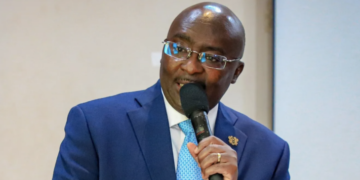The Ghana Catholic Bishops’ Conference (GCBC) has dismissed claims that it is organizing an environmental prayer protest walk against illegal mining (galamsey).
Most Rev. Gabriel Justice Anokye, the Archbishop of Kumasi, clarified that the event is being organized by the Accra Archdiocese and not the national body, as some reports suggested.
This statement comes amid attempts by certain political figures to politicize the initiative.
Archbishop Anokye emphasized that the Church’s stance on galamsey is purely environmental and moral, urging that the fight against this menace should not be turned into a political issue.
“The prayer walk is being organized by the Accra Archdiocese, not the GCBC. This is not about politics; it is about protecting our environment and safeguarding the future of our nation,” Archbishop Anokye said.
The GCBC has consistently voiced strong opposition to galamsey, pointing to its devastating effects on the environment, water bodies, and human health.
The bishops have urged the government to take firm action against illegal mining, strictly enforce existing laws, and hold those responsible accountable.
“We call on the government to act decisively in halting illegal mining activities.”
“It is time for more robust enforcement of the laws, and those who are destroying our land and water bodies must face justice,” the Archbishop added.
The Conference also called for a united front in tackling the galamsey problem, urging all key players—including government bodies, civil society, chiefs, religious leaders, and the media—to join forces in addressing the crisis.
“The fight against galamsey must be a collective responsibility. We need dialogue among all stakeholders to find lasting solutions, and we must ensure that sustainable mining practices are implemented,” Archbishop Anokye noted.
While recognizing the economic importance of mining, the GCBC stressed that this must be balanced with environmental preservation, advocating for responsible and sustainable mining practices.
“We are not against mining, but it must be done in a way that protects our natural resources for future generations,” the Archbishop stated.
‘Takeaway packs’ to be banned soon – Mahama reveals
President Mahama has declared an impending nationwide ban on the importation and local production of styrofoam plastic (popularly known as...
Read moreDetails


















































































